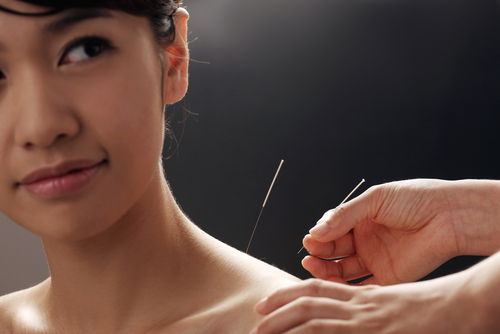Acupuncture

What is acupuncture?
Acupuncture is an ancient therapy based on the principles of Chinese Medicine. Central to understanding acupuncture is the concept of qi, a vital energy or life force that flows through our bodies. This qi is concentrated within channels and meridians throughout the whole body. If the flow of qi is disrupted it can result in illness or pain. Acupuncture works by correcting the flow of qi and preventing further disruptions from occurring. This is achieved by accessing the qi at specific locations known as acupuncture points. With over 350 different acupuncture points, the methods of diagnosing and treating with acupuncture are always tailored to the individual.
Where does acupuncture come from?
There are many different varying forms of acupuncture across the globe. The kind of acupuncture I practice is based on the traditions of Chinese Medicine which is said to have originated over 2,000 years ago in China. It is well-documented in ancient Chinese medical texts. Like any other form of medicine it has changed and developed significantly over the years alongside new medical discoveries and changing cultures. Although we are a long way from the ancient dynasties of China, acupuncture still has a unique place within healthcare - we are very fortunate to have access to both natural methods of healing and more orthodox medical interventions!
Can acupuncture help me?
Acupuncture is used to support individuals with many different conditions. Sometimes the aim of acupuncture is to eliminate symptoms entirely, while at other times it is more realistic to try and manage or improve symptoms. If you are unsure of whether acupuncture can help you, please get in touch so we can discuss your symptoms.
Specific guidance can also be found on the British Acupuncture Council website.
Are there times when acupuncture cannot be used?
Yes, there are times when I may not use acupuncture. For instance, if somebody is taking anti-coagulant medications such as warfarin. Alternatively, if somebody has an unstable condition such as uncontrolled diabetes or very high blood pressure for which they have not sought medical advice, I would always suggest seeing the GP before seeking help from any alternative therapies. If you are immuno-suppressed, for example during cancer treatment, I would need confirmation from your consultant oncologist that it is safe for you to have acupuncture based on your blood reports (including white blood cell counts and platelet levels).
There are also conditions for which some acupuncture points and styles of treatment are contraindicated (not allowed). For instance there are points which cannot be used during pregnancy. Acupuncture treatment can still be administered in such cases, but certain points would be avoided.
How many sessions will I need?
This depends very much on your individual circumstances. The number of sessions required will depend on whether your condition is acute or chronic, and on how quickly your body responds to treatment. This is discussed during the initial consultation where I work with each individual to construct a workable treatment plan for them.
It is common for patients to have frequent sessions initially, and then return for infrequent treatments, for instance once a month, or every three to six months even after symptoms are alleviated - if the condition is one which requires preventative measures or maintenance.
What does it feel like?
The needles used are much finer than injection or syringe needles. Some people feel nothing at all. For others where the needles are inserted there may be a sensation such as a dull ache, and very occasionally people do experience some pain, but I always keep a dialogue around how you are feeling during the treatment to ensure you are comfortable. Once the needles are in, many people feel a deep sense of relaxation and often drift into sleep.